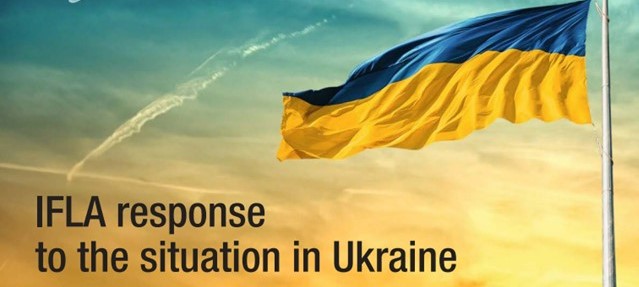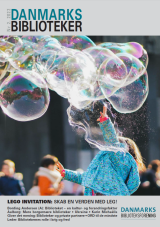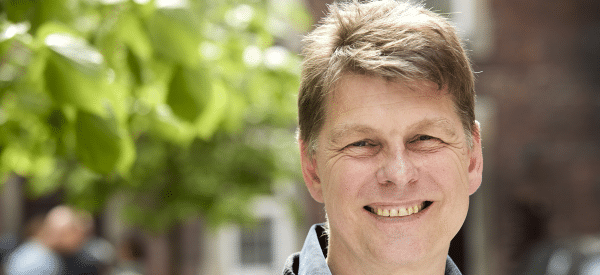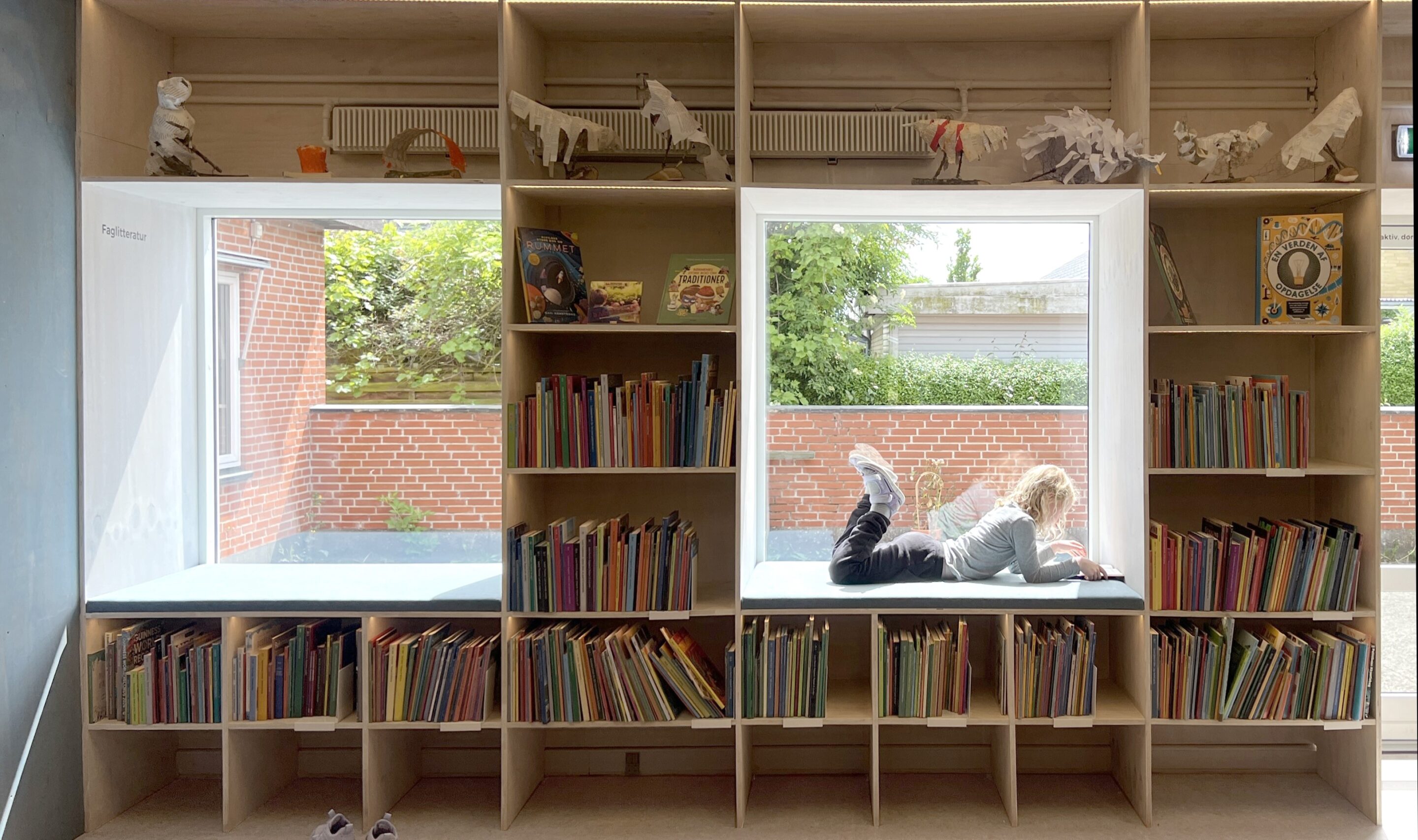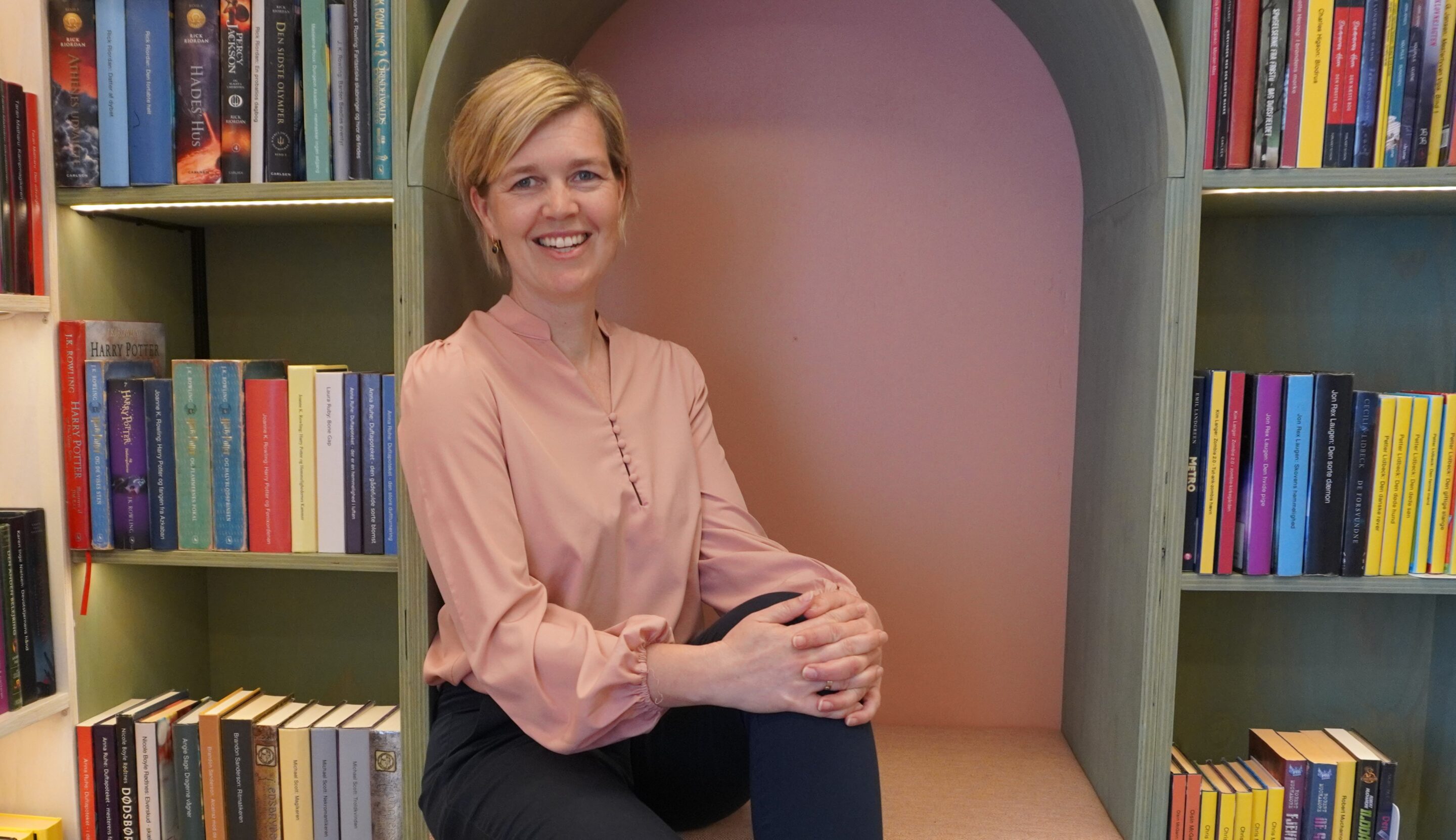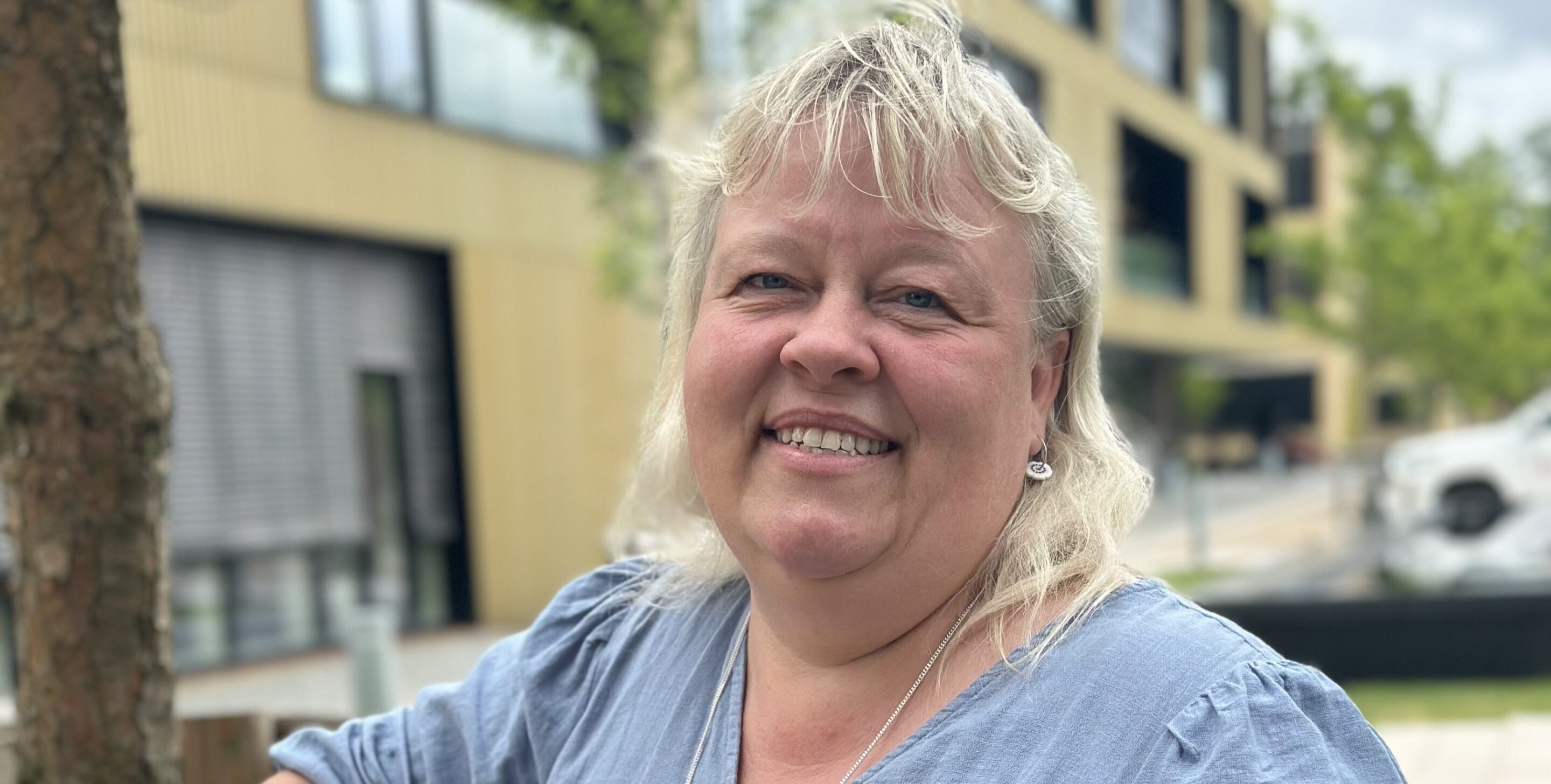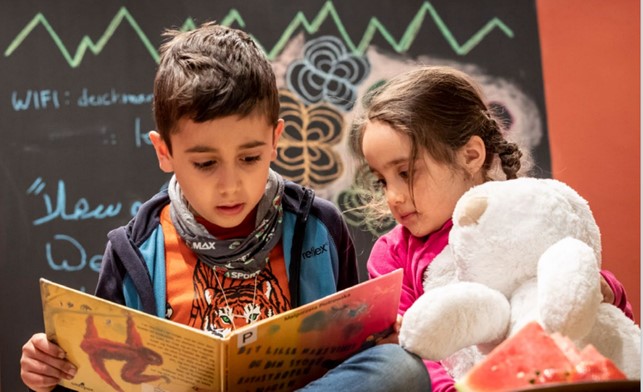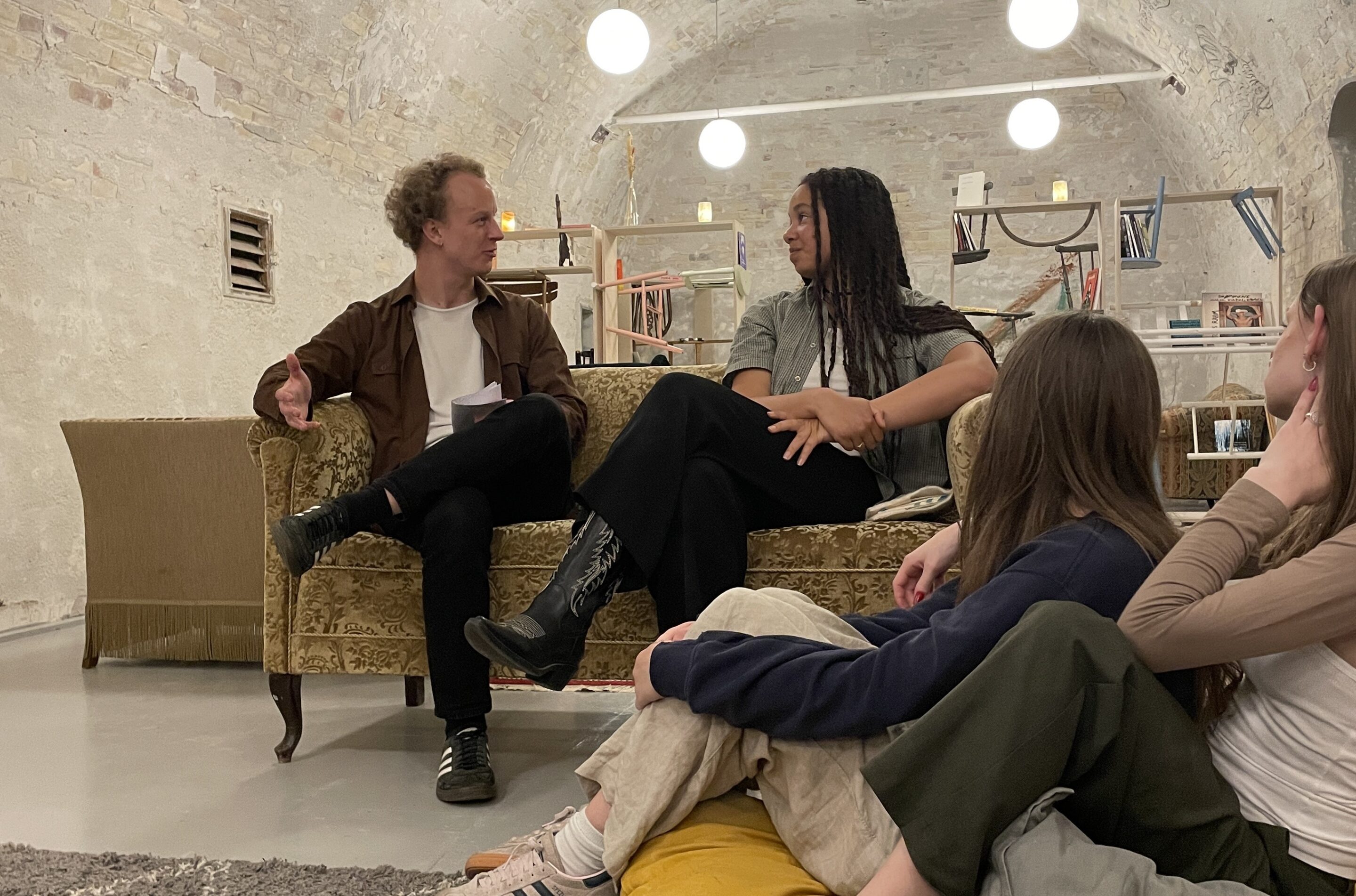Ruslands brutale invasion i Ukraine er noget, vi alle tager dyb afstand fra. Invasionen har naturligvis også været drøftet i den internationale biblioteksorganisation IFLAs styrende organ Governing Board – og det flere gange. IFLA’s hovedkvarter i Haag og medlemmerne af Governing Board har nærmest dagligt modtaget opfordringer til at komme med en udtalelse – og det skal IFLA i sagens natur også.
Der har dog været mange debatter, inden man kunne finde frem til en formulering og en fælles holdning til indholdet af den udtalelse man fik på plads. Her er udtalelsen, der kunne udmeldes den 1. marts:
“IFLA stands in solidarity with our colleagues in Ukraine – condemns all violent actions and joins the international community in their statements on the situation.
In alliance with the protest of the international Library community IFLA urgently appeals to the libraries all over the world to mobilise in favour of accurate information to be spread on the conflict as a means to support democracy and freedom of expression. IFLA also asks libraries to support any Ukrainian refugees, in collaboration with governmental and non-governmental organisations. We should be ready to find practical solutions and be prepared to provide Ukrainians with assistance and support as needed.”
Reaktioner og diskussioner
Udtalelsen affødte en del forskellige reaktioner. Flere mente, at IFLA burde tage skarpere stilling til overgrebet, andre havde den holdning, at IFLA har ramt det godt, og at det vigtigste er give støtte til ukrainske kolleger og institutioner samt at arbejde for fri adgang til troværdig information.
Derfor var debatten slet ikke færdig i Governing Board 1. marts, men blev taget op på ny. Det er dog en vanskelig balancegang, når IFLA er en international institution, der rummer medlemmer fra hele verden – også Rusland. Vi har skelet til andre internationale organisationer, blandt andre UNESCO, Blue Schield og ICOM.
Vi diskuterede indgående i GB, om IFLA skulle udelukke de russiske medlemmer og er her landet på, at det gør vi ikke. En ting er, at IFLA-statutterne ikke giver mulighed for det. Noget andet er, at vi ønsker at opretholde dialogen med de russiske kolleger. Dog er der ingen fra IFLA, der deltager i aktiviteter arrangeret af og i Rusland.
Endelig kom der så den 21. marts en ny og uddybende udtalelse fra IFLA, som jeg faktisk mener, er rigtig fin.
Med håb om reelle fredsforhandlinger her i forårsmånederne, bringes hele denne udtalelse også her:
IFLA Response to the Situation in Ukraine
"IFLA stands in solidarity with our colleagues in Ukraine and joins the international community in an urgent call for a ceasefire. Our thoughts and sympathy are with the victims and our colleagues, the library and information workers in Ukraine, who with their communities are suffering from a humanitarian and human rights catastrophe.
IFLA recognises that when states initiate armed force, it is ordinary citizens on all sides who are the victims. Through- out history, libraries, cultural heritage institutions, literature, language and ideas have come under direct attack in times of conflict. IFLA calls for an immediate end to the conflict to protect people, ideas, libraries and culture in accordance with international human rights law and the 1954 Hague Convention for the Protection of Cultural Property in the Event of Armed Conflict and its two (1954 and 1999) Protocols.
IFLA strongly reaffirms its core values of freedom of expression, access to information, high quality service and a commitment to value diversity and inclusion in all its forms. IFLA believes that librarians and information professionals around the world share the same intrinsic values. Therefore, it cannot be the intention to exclude libraries and librarians on the basis of their nationality, or to isolate them. This is particularly important when the exercise of individual freedom of expression comes at great personal risk.
The Governing Board of IFLA has discussed the correspondence and demands for the exclusion of the Russian Members of IFLA. According to the Statutes, the conditions for exclusion are currently not met and the necessary proof is lacking that Members are behaving in a way that would constitute a valid reason to exclude them. This decision was taken unanimously at an extraordinary Governing Board meeting on Friday, 18 March 2022. The Governing Board decided also that IFLA will not participate in any events, virtual or physical, held in the Russian Federation until the situation is peacefully resolved.
Since the attacks on Ukraine began, IFLA has been actively engaged with international high level organisations focused on the threats to cultural heritage, library buildings, collections and the people who staff them. Acting not alone, IFLA is working with Blue Shield International and UNESCO on plans and actions to safeguard documentary heritage and library collections. This has been in coordination with fellow founding organisations of the Blue Shield, ICOM, ICA, and ICOMOS, as well as with the Ukrainian Library Association. An IFLA task force has been established involving experts from a range of IFLA committees to work on practical tasks which leverage IFLA’s strengths and, by communicating with stakeholders on the ground, can support our colleagues in Ukraine.
Cultural heritage belongs to all of humanity and IFLA appeals to libraries and librarians all over the world to call for a ceasefire and to stand in solidarity with our colleagues in Ukraine."
KIRSTEN BOELT, Medlem af Danmarks Biblioteksforenings Repræsentantskab og siden sommeren 2021 medlem af IFLA Governing Board

